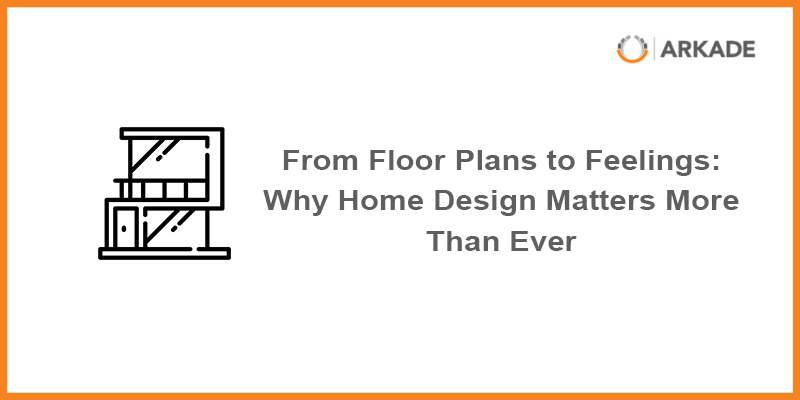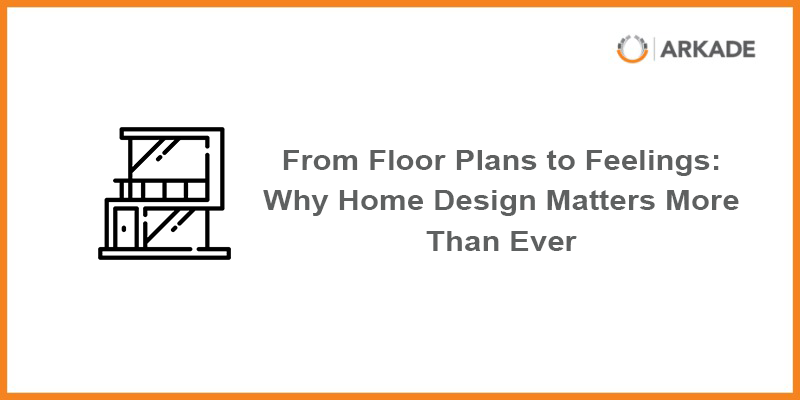
From Floor Plans to Feelings: Why Home Design Matters More Than Ever
By Mr. Sandeep Jain, Director, Arkade Developers
Our homes are no longer just places we return to at the end of the day—they’ve become our offices, gyms, classrooms, and sanctuaries. As our lifestyles have shifted, so too has the importance of thoughtful design. What was once seen as a luxury is now a necessity.
The Shift in Living Spaces
Gone are the days of cookie-cutter homes built around square footage alone. Today’s homeowners want more than just space—they want spaces that align with the way they live. Modern floor plans reflect this change, evolving into fluid, flexible layouts that blend form and function. Kitchens flow into dining areas, work nooks emerge in bedrooms, and balconies transform into pockets of greenery.
But the true beginning of design doesn’t lie in blueprints. It lies in intention.
Designing for Emotion
A well-designed home speaks to us—not with words, but with feeling. It makes us feel secure, energized, inspired. Great design isn’t just about paint palettes or furniture placement; it’s about understanding how people live in and move through a space. It’s about capturing the sunlight as it hits the kitchen table in the morning, or placing a chair where a breeze naturally flows through. These seemingly small moments define how connected we feel to a place.
Good design creates comfort. Great design creates belonging.
The Rise of Meaningful Interiors
Today’s homeowners are more conscious, curious, and involved in the design process. They’re asking about everything—materials, lighting, storage solutions, air flow. They want homes that are not just visually appealing but highly functional and emotionally intelligent. Interior design has become a practice of problem-solving: how to organize without cluttering, how to brighten compact areas, how to make every corner count without sacrificing style.
Functionality is no longer separate from beauty—it’s a part of it.
Wellness Through Design
More than ever, design plays a powerful role in promoting well-being. Homes filled with natural light, calming textures, and thoughtful layouts can uplift our mental and emotional health. As the principles of wellness architecture gain momentum, developers are increasingly focusing on features like fresh air circulation, biophilic design, sound insulation, and soothing color palettes.
The goal isn’t just to build houses—but to nurture healthier lives within them.
The Developer’s New Role
For developers, this evolution presents both a challenge and an opportunity. Building and selling homes isn’t enough anymore. What’s needed is an experience—spaces that resonate emotionally and function intuitively. Developers must think like designers, collaborate with psychologists, and stay attuned to cultural shifts. Every choice, from layout to lighting fixtures, becomes a part of the story.
The Road Ahead
As lifestyles continue to evolve, so will our homes. Flexibility, warmth, and personal expression will remain at the heart of design. The future belongs to spaces that adapt and respond—homes that do more than shelter us, they inspire us.
In the end, it’s not the floor plan we remember most—it’s that feeling of stepping inside and knowing, deep down: this is home.


